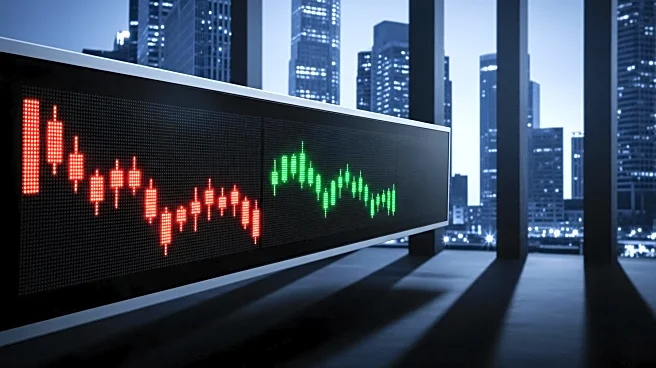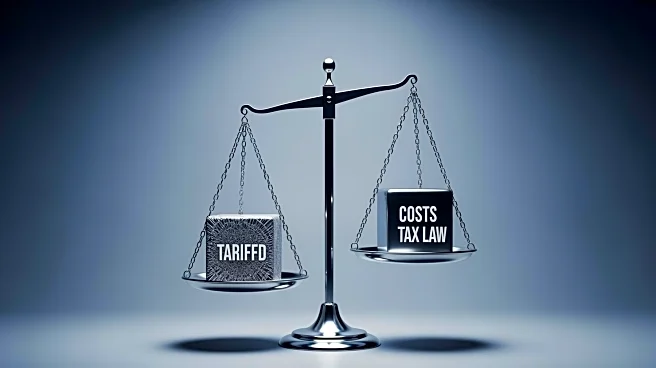What is the story about?
What's Happening?
U.S. stock markets saw a decline from record highs on Tuesday, driven by investor concerns over economic uncertainty and a lack of federal economic data due to an ongoing government shutdown. The New York Federal Reserve's consumer expectations survey indicated worsening future expectations and rising inflation projections, contributing to the market's downturn. The shutdown, now in its seventh day, has forced investors to rely on secondary data and Federal Reserve officials' remarks to assess economic conditions. Economically sensitive sectors such as homebuilding, housing, airlines, and transport underperformed, while consumer discretionary stocks experienced the steepest decline. Despite the overall market downturn, some companies like AMD and IBM saw gains due to positive developments in their respective sectors.
Why It's Important?
The current market situation highlights the significant impact of political and economic uncertainties on investor confidence and market performance. The government shutdown has created a data blackout, leaving investors without crucial economic indicators to guide their decisions. This has increased reliance on secondary data and Federal Reserve communications, which may not provide a complete picture of the economic landscape. The market's reaction underscores the sensitivity of stocks to economic forecasts and policy decisions, particularly in sectors directly affected by consumer spending and interest rates. The situation also reflects broader concerns about inflation and economic resilience, which could influence future Federal Reserve policy actions.
What's Next?
As the government shutdown continues, investors and market analysts will likely focus on any developments that could lead to a resolution and the resumption of federal data releases. The Federal Reserve's upcoming policy meeting will be closely watched for any indications of interest rate adjustments, which could further influence market dynamics. Additionally, companies in economically sensitive sectors may face increased scrutiny as investors assess their ability to navigate the current economic environment. The ongoing situation may also prompt discussions among policymakers about the need for measures to mitigate the impact of political impasses on economic stability.















